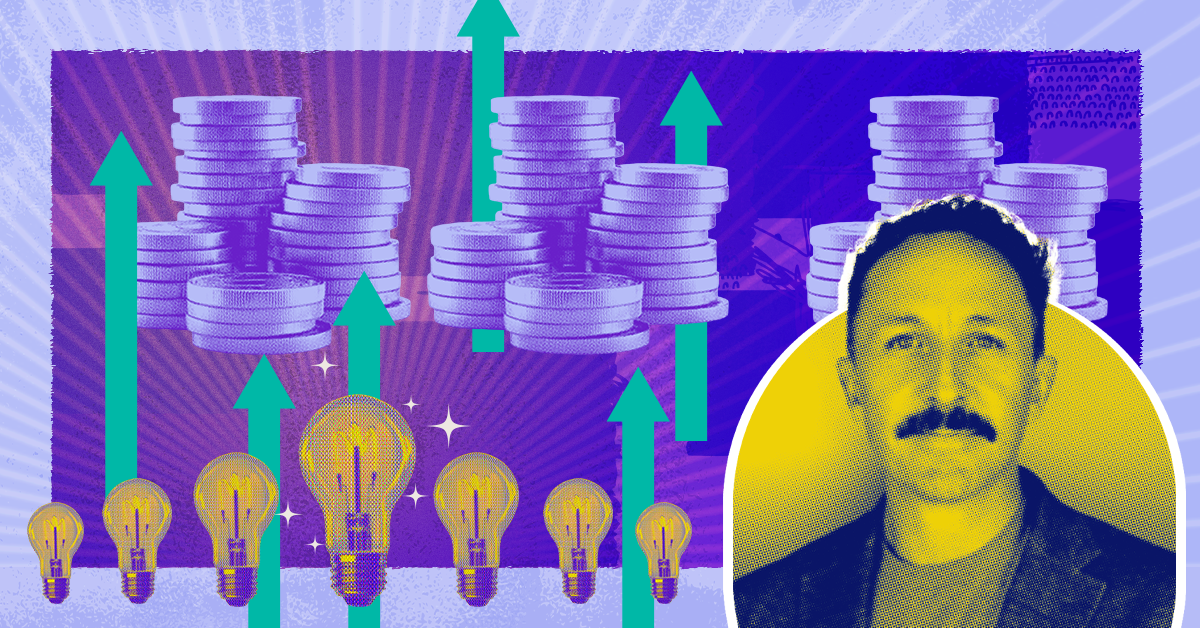After bouncing back from a hard year in 2023, tech is on the rise. AI in specific has seen huge growth in adoption. According to a McKinsey report on The State of AI, adoption rates are up to 72 per cent of respondents citing that their organization are using AI.
If we follow the money further, it’s clear that AI is one of the fastest-growing technology fields and with that also comes increased demand in the artificial intelligence job market. The McKinsey report also finds that organizations are likely to invest more than 5 per cent of their digital budgets in generative AI and analytical AI
AI is being used in a wide range of industries, from healthcare to finance, so traditional companies are investing in the technology, creating roles for people with expertise in generative AI, machine learning, natural language processing, data science, software development and other AI-related areas. AI is also a helpful tool for automating time-consuming tasks so you can get back valuable time to focus on growth and revenue-driving activities, like implementing new partnership strategies.
In this article we will:
- Share some of the career fields and roles that are growing with the increased demand for AI technology
- Plus, we'll share their current salary bands in USD
Let's get started.
Which jobs will increase in demand with AI?
While many people are still focusing on potential job losses, AI job growth is reaching unprecedented heights. According to the US Bureau of Labor Statistics, careers in artificial intelligence are projected to grow 21 per cent from 2021 to 2031.
Companies aren’t necessarily using advancements in AI to replace people, but rather to improve workplace efficiency and productivity by automating processes, allowing their current employees to work smarter, not harder.
In the first half of 2024 alone, AI companies received 41 per cent of US VS deal value, according to PitchBook. Deals have grown on average and funding is still happening — and it seems that venture capital and other investors are placing their bets on generative AI. With funding comes opportunity — and as AI technology continues to evolve, here are ten technology-based occupations where demand is growing.
Related: How to talk to partners and prospects without AI chatbots.
Machine learning engineer
One of the most essential roles in the development of AI is the machine learning engineer. As companies seek ways to automate processes, increase efficiency and gain a competitive advantage, this role is responsible for designing and developing artificial intelligence and machine learning systems that can learn and adapt on their own.
Machine learning engineers create algorithms, build and manage data pipelines and deploy models. A strong background in computer science, statistics and mathematics along with the knowledge of programming languages like Python and Java are integral to this job. They should also have experience with data manipulation, analysis, and visualization.
Average salary: $103,000 to $251,000 USD annually
Natural language processing (NLP) scientist
While everyone has heard of ChatGPT (Chat Generative Pre-Trained Transformer) by OpenAI — this large language model-based chatbot has also become people’s first exposure to the work of a natural language processing scientist. Along with machine learning job growth, the demand for NLP scientists is increasing. An NLP scientist plays the important role of developing technology that allows computers to better understand, interpret, generate and interact with human language.
They specialize in developing computer programs and algorithms using statistical and machine learning techniques to understand human language data like text, speech, and audio which can then be used for automated translation, speech recognition, sentiment analysis, and chatbot applications. They work with software engineers, data scientists, and linguists to implement these systems while also staying up to date on advancements in this rapidly changing field.
Average salary: $154,000 to $253,000 USD annually
See more: Here's how automation saves you time and money.

Data scientist
Working closely with machine learning engineers and software developers, data scientists play a key role in the development and improvement of AI technology. Their role is to collect, analyze and interpret complex sets of data by using both statistical and mathematical models to identify patterns and trends in the data and programming languages like Python and SQL.
They design experiments and collect data that is used to train and test AI models so they can learn, become more accurate, reliable and effective. Data scientists take all that data and knowledge and recommend improvements to advance the technology forward.
Average salary: $77,000 to $198,000 USD annually
Business intelligence (BI) developer
When companies want to make data-driven decisions, they often look to a business intelligence developer, making this a key role to fill on the AI job market. BI developers help in designing and building the infrastructure needed for AI systems to function, including the implementation of data warehouses and other data storage systems.
These are key for training and operating AI algorithms. BI developers may also be responsible for the integration systems that ensure the data is of the highest quality possible so it can be used most effectively by AI algorithms. These are individuals with excellent communication and problem-solving skills as well as a background in data analysis, programming, and statistics.
Average salary: $71,000 to $145,000 USD annually
Director of Marketing
In the B2B SaaS industry, a director of marketing is a vital part of a company's success, bringing a deep understanding of both the technology and the target market, all while managing a team of marketing professionals. It is this person's responsibility to oversee all marketing activities related to the SaaS, including AI products, and to develop and implement marketing strategies to promote them.
They work with product development teams to ensure that the company's marketing strategy describes a product's features and capabilities clearly. Furthermore, they analyze market trends, track their competitors, and research the needs of their customers, implementing marketing strategies and partnerships to support the scale of their ecosystem.
Average salary: From $61,000 to $184,000 USD annually
Human-centered machine learning designer
To understand how people interact with technology, a human-centered machine learning designer is the person to consult. Specialists in the design and development of machine learning systems that focus on the needs of human users, these professionals work closely with data scientists, UX/UI designers and product managers.
They identify user needs and create solutions by ensuring AI technology is accurate, efficient, intuitive and user-friendly. Like UX/UI designers, they use a combination of user research, prototyping and usability testing in their work in order to ensure that machine learning systems enhance human capabilities rather than replace them.
Average salary: $90,000 to $120,000 USD annually
Did you know? Cloud 100 companies lean into partner-led GTM strategies more than the SaaS average.

Software engineer
Software engineers are critical in any AI development. They are responsible for designing, developing, and testing the software that powers AI systems. Algorithms, programming languages and software work together so that machines learn and make decisions based on data patterns and a software engineer creates the infrastructure that fuels AI technology. They write code that can absorb large amounts of data, interpret the data, and produce actionable results. They also design and implement algorithms that allow machines to learn and adapt, perform QA testing, debug code and look at data privacy and protection considerations across all kinds of SaaS companies.
Average salary: From $100,000 USD
You might also like: Why ChatGPT won’t replace your job (and how to use it to your advantage).
Software developer
AI systems would not exist without the software developers who design, code, and test the algorithms that make the technology possible. A software developer works with data scientists, AI researchers, and other key players to create systems that can perform intricate tasks like natural language processing, image recognition and decision-making.
They are also responsible for ensuring that AI systems are reliable, secure and scalable by performing tests that identify any bugs and ensuring that the systems can sustain large volumes of data and traffic. Their knowledge and expertise are vital to creating AI that will transform the B2B SaaS industry.
Average salary: $66,000 to $167,000 USD annually
Computational linguist
When it comes to AI job growth, demand is increasing for computational linguists. In a field that merges computer science and linguistics, a computational linguist develops computer algorithms and models that process and analyze human language to create AI systems that can understand and generate human language.
This is used for speech recognition and machine translation applications. Alongside NLP scientists, they design and implement natural language processing systems, develop machine learning algorithms for language processing and analyze linguistic data to identify patterns and trends. Some of the projects they work on include customer service chatbots and speech recognition software for virtual assistants, which are essential automation technologies for many SaaS companies.
Average salary: $101,000 to $130,000 USD annually
See more: Top growth channel tactics for summer 2023.
Product Manager
Product managers oversee the entire product lifecycle from conception to launch and beyond. This person evaluates go-to-market opportunities and customer needs that can be solved using AI and software. They work closely with engineers and data scientists to ensure the product is technically sound before it reaches the customer.
It is imperative that a product manager has a deep understanding of the technology behind the products in development and is able to communicate effectively across the business to ensure that the product aligns with the company's goals. Innovative and strategic thinkers, they can identify emerging trends or technologies that can be applied to the creation of new products or improvements of existing ones.
Average salary: $76,000to $190,000 USD annually


















